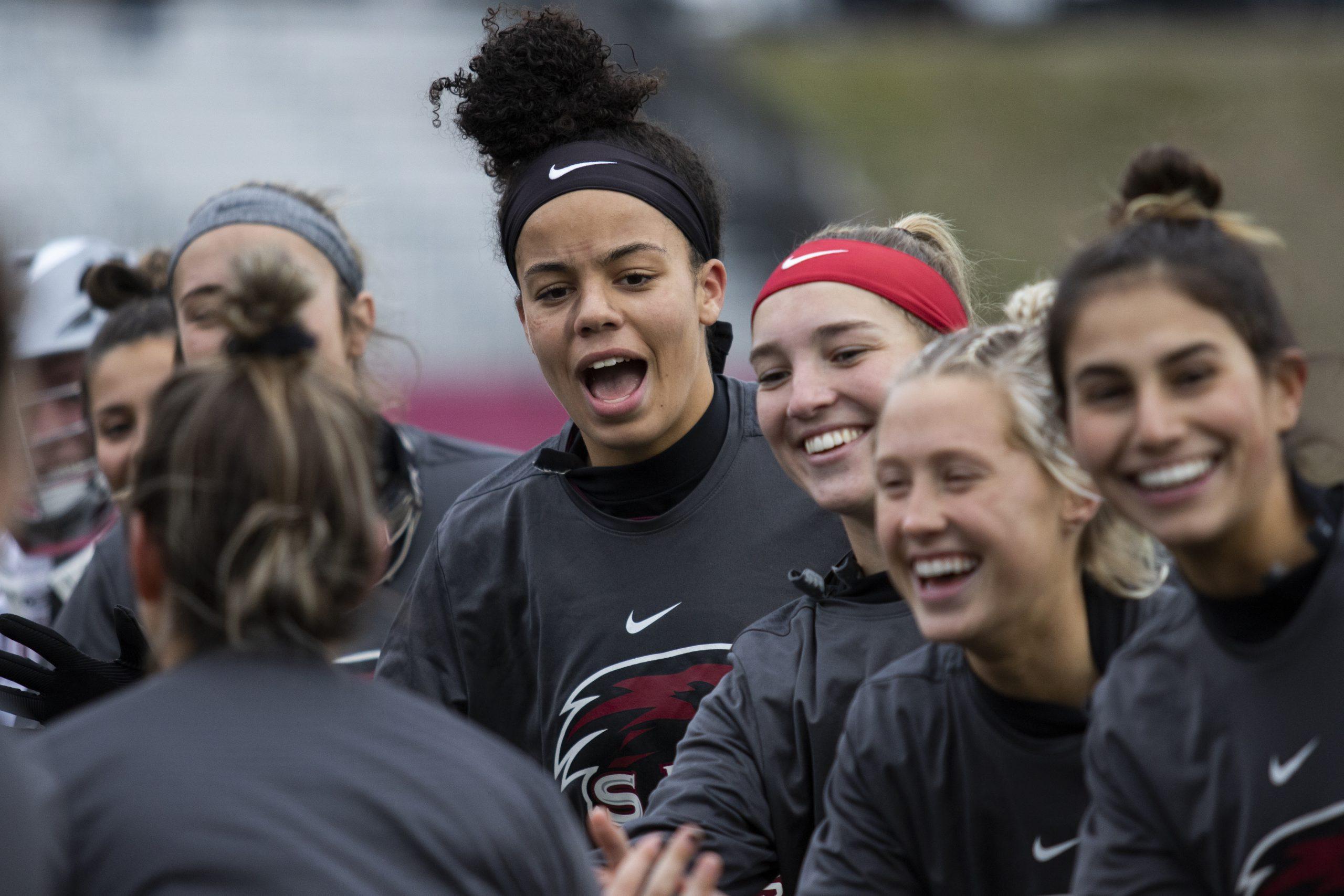When Slam Dunkley ’20 said he was tired of educating his peers about racial biases, the rower’s mother asked, “If not you, then who?”
Since then, Dunkley has made it his mission to provide an afro-Indigenous perspective on campus. He has written race-themed articles for The Hawk, formed panel discussions that touch on injustices and given presentations on white privilege.
At the second annual Day of Dialogue, the SJU Athletics community personified Dunkley’s mother’s words. Over the course of two sessions, student athletes from a wide range of teams educated the campus community about diversity, equality and inclusion.
In the webinar “SJU Athletics: Our Stories,” St. Joe’s players and coaches shared their experiences with diversity in a 25 minute pre-recorded video. The video was preceded by discussions led by Christina Foggie, director of special projects and special assistant to the athletics director, and Jasmine Cannady, associate athletics director for marketing and fan experience. The discussions focused on the importance of speaking up about racism and how Black women are often stereotyped.
Taylor Newman-Farr, a senior midfielder on the St. Joe’s women’s lacrosse team, said in the video that her friend group in high school was so diverse that it referred to itself as the “world of nations.” When Newman arrived at St. Joe’s, she didn’t see as many cultures and ethnicities as she was used to.
“It was definitely a culture shock,” Newman-Farr said. “I had to learn to stand my ground on the importance of diversity.”
Newman-Farr said she has been confronted with a considerable amount of microaggressions on campus. She said students at St. Joe’s need to use their privilege to create change.
“There is so much more that we can do,” Newman-Farr said. “Sixty percent of the privilege is being used for good and I think we need to use the other 40% to help our communities.”
Darynn Minus-Vincent, a sophomore sprinter on the St. Joe’s women’s track and field team, said one way in which privilege can make a positive impact is on social media, which serves as a platform for people to educate others and also educate themselves.
“Social media is a great resource to educate yourself about what you don’t know,” Minus-Vincent said. “Use your position of power to your advantage, one story repost can make a heck of a difference.”
Ryan Dao is a junior on the St. Joe’s men’s track and field team. Dao’s father is a refugee who immigrated from Vietnam. The way that former U.S. President Donald Trump’s administration treated immigrants and refugees, specifically at the U.S.-Mexico border, upset Dao and his father. Dao said going forward, he would like to see Americans be more considerate in accepting refugees.
“The issue of refugees cannot be understated,” Dao said. “Refugees have their own stories, and they’re not bad people. I want to be the vocal extension for my dad.”
In the second event of the day, “Students Leading Each Other: Athletics Peer Panel,” student athletes discussed topics such as the discomfort of racial conversations, using the platforms presented by athletics and the importance of being an ally to Black, Indigenous and people of color.
Bobby Hastie, a senior on the St. Joe’s men’s track and field team and a mathematics major with a focus in secondary education, reflected on a time when he served as an ally.
In a faculty meeting on his second day as a student teacher, Hastie explained to the school’s primarily white faculty why race is discounted when they claim that they don’t see color. Hastie said several teachers thanked him after saying what they were afraid to.
“You will not be alone when you say something,” Hastie said. “It takes a lot of courage, but when you do there will be a lot of people flooding behind you.”
While the women’s basketball team is one of the most diverse teams on campus, sophomore forward Gabby Smalls said she still experiences racism on campus. In the Wendy’s drive-thru on City Avenue, she said she was called a racial slur by a man in the car behind her. She realized if she continued to stay silent, people were not going to know how racism affected her.
“I always made it my goal to bring awareness to the classrooms,” Smalls said. “I always try to ask how Black Lives Matter relates to assignments. If we don’t continue to keep talking about it, it’s going to go away.”














































